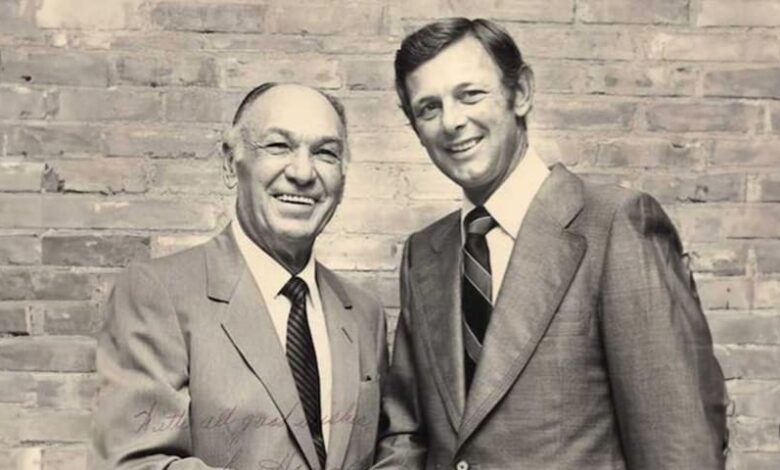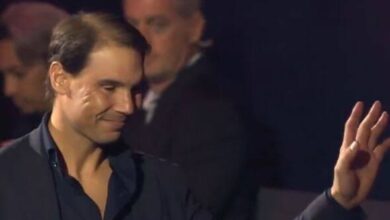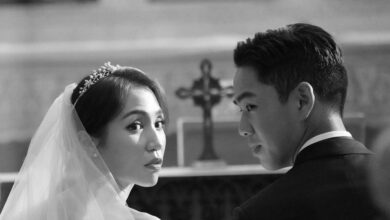Bruce Devlin reflects on his victory at Colonial Country Club, friendship with Ben Hogan

Of the eight tournaments I won in my 22-year PGA TOUR career, I have to say winning the 1966 Colonial National Invitation — the tournament now known as the Charles Schwab Challenge held at Fort Worth’s Colonial Country Club — may be a little more special. There is one reason for that: Ben Hogan.
In 1960, before turning pro, I won the Australian Open, and because of that victory Clifford Roberts and Bobby Jones invited me to play in the 1961 Masters. I was 23 years old, and my game was solid. So, you know what I did? Are you ready? I turned down the opportunity to play in the tournament at Augusta National.
But for good reason.
I simply didn’t have the money to travel from Australia to the States.
The following year, thankfully, another Masters invitation came, and this time I was in a better financial position, and I accepted. I had just turned pro, and so in April, I accompanied my coach, Norman Von Nida, to Georgia for the tournament. An accomplished player himself, Norman, too, would compete in the 1962 Masters, in what would be his fifth and final appearance.
Early in the week, I was in the locker room soaking up the atmosphere when Norman introduced me to Ben Hogan. Norman made a simple request: “Ben, this is Bruce Devlin. Would you be kind enough to play a round of golf with my young friend from Australia?”
Hogan reached out his hand, shook mine and said, “Sure.”
We made arrangements, and the next day, Tuesday, I played my first round of golf at Augusta National — with Ben Hogan as my partner.
I can say that standing on that first tee during a practice round at the 1962 Masters was my favorite and most-nervous moment on a golf course. As we were waiting to tee off, Ben looked in my golf bag, pulled out my driver, flipped my Slazenger club a little and said, “You better be careful using these buggy whips.”
Ben played Apex 5 shafts that were so stiff you could hardly bend them, so when he took my Slazenger that had a shaft with bit more flexibility, he had a name for it.
We played as a twosome that day, and that began a long relationship I enjoyed with Ben. Unfortunately, my week in Augusta was a short one. I shot rounds of 80-76 and Norman countered with 78-77. We both missed the cut. Ben finished alone in 38th, and Arnold Palmer won his third green jacket.
I remained in contact with Ben after that, and two years later, I broke through and won my first PGA TOUR title, at the 1964 St. Petersburg Open in Florida. Thanks to a second-round 64, I beat Dan Sikes by four shots. The following year, I didn’t win a tournament but came close, with four second-place showings and one third-place effort. I ended the season sixth on the money list and felt well-established on TOUR.
The year I won in St. Petersburg, I also made my debut at the Colonial National Invitation, tying for 36th. Ben tied for fourth in his hometown event, and we were able to spend more time together. I then skipped the tournament in 1965, and I can’t recall why. I did return to play in 1966, and that was the year I added a permanent place in my heart for Fort Worth.
In 1966, Ben’s playing career was winding down, and he was only entering a few tournaments a year. Colonial seemed to always be on his schedule, however, and he was still a formidable player despite being in his mid-50s (Hogan was 54 at the 1966 Colonial).
I opened the Colonial with a 3-under 67 to take the 18-hole lead. Only six others were able to break par with me. The course, as usual, was playing tough. I followed with a 68 and held a three-shot lead over Gene Littler at the halfway point. Al Geiberger was in third, four back. We were the only players under-par.
In the third round, despite an hour delay to the round because of rain, I made birdies on two of my first four holes, but I made a bogey 5 on No. 6 after I called a penalty on myself for accidentally tapping my ball while I was in a bunker. I did make a bad mistake on the 15th hole, hitting my ball long and into the water, and I also made another bogey, on the 17th. My five-shot lead midway through the round dropped to three with 18 holes to play.
Admittedly, I did not play well on the final day, shooting a 5-over 75. Thankfully for me nobody else went low. Littler made a triple bogey on the ninth hole, ruining his chances, and while R.H. Sikes made a late charge. Fortunately for me, he began the day five back. I beat R.H. by a shot despite making a double bogey at 10 and another bogey at 15.
For the win, I walked away from Colonial with a trophy, $22,000 and a tartan jacket. At least I thought I won a jacket. Following the ceremony, I asked tournament officials to ship the jacket to me in Australia once it had been tailored. One problem: The jacket never arrived. I waited and waited. When I returned to Colonial the following year to defend my title, some of the members asked me why I wasn’t wearing my jacket. I had to inform them that it never made it to my home. The tournament quickly took care of that little matter, and I still have that Colonial tartan jacket today.
Whenever I think of my win in Fort Worth 58 years ago, I always think of my relationship with Mr. Hogan. A month after winning Colonial, my wife, Gloria, and I traveled on the same plane with Ben and Valerie to San Francisco for the U.S. Open. We all stayed at the Top of the Mark Hotel in the city, we played every practice round together at The Olympic Club and we had dinner each night. It was really something for a fairly young guy like me to be around Mr. Hogan that much.
Ben won the Colonial five times, never missed the cut in 21 starts and had 15 top-10 finishes. For me to win even once at Colonial, with Ben in the field on a course where he dominated and in the town where he was born, well, it was like a dream.
I couldn’t be prouder.



